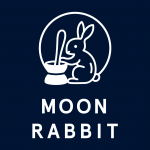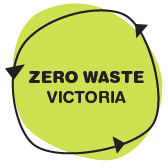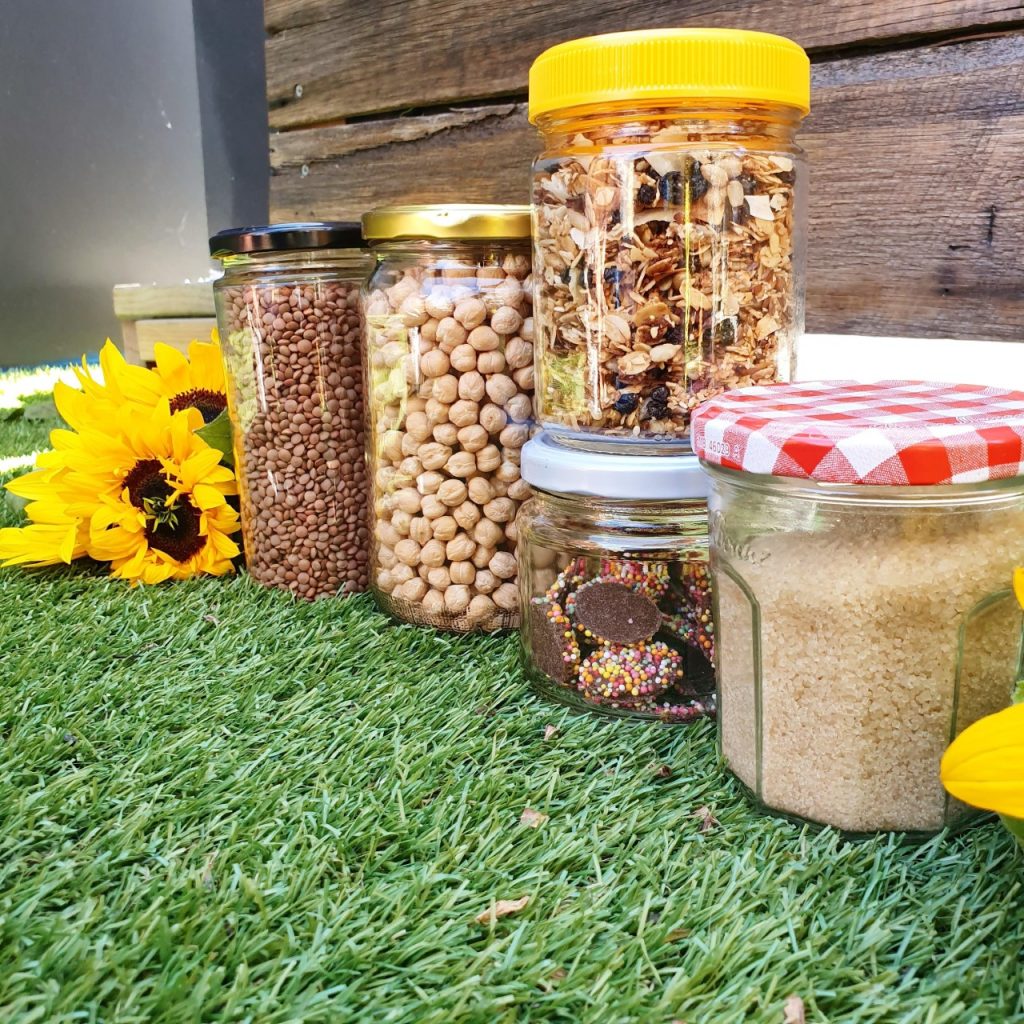Moon Rabbit and Bridge Darebin are launching a Bulk Foods Collective to support the community in and around Preston, Darebin, and they have been exceptionally community minded and environmentally aware throughout the project. We interviewed Mahira Sobral, Moon Rabbit Bulk Foods Collective Convenor, to find out more about this exciting new initative.
ZWV: Congrats on the forthcoming launch of a Bulk Foods Collective in Preston! Before we jump into that, could you share with us about the first couple of other projects – Moon Rabbit Cafe and Bridge Darebin? What are they and what are the philosophy and values behind what you do?
Mahira Sobral: Moon Rabbit is an environmentally innovative social-enterprise café in Preston. We’ve never had disposable takeaway cups and have prevented more than 23,631 takeaway cups from ending up in landfill. We produce as close to zero waste as possible, with a comprehensive compost system; an emphasis on reducing, refusing, reusing and refilling before recycling; tailoring our menu and specials to the seasons and what’s in surplus; and inspiring or changing our suppliers to help limit operational waste.
We weigh and record our waste every day so we can continually learn and improve. Community members supply us with home-grown produce as well as pre-loved mugs and glass jam jars, which we provide to customers as takeaway options. And they donate cardboard packaging that we reuse to create our loyalty cards.
Moon Rabbit is part of Bridge Darebin, a not-for-profit community organisation based in Presto n and Thornbury that provides social and educational services to empower those who need it most. What started out as a neighbourhood house in 1982 is now multiple sites and services, including adult education, childcare, community programs, venue hire, Makers Market Thornbury and Moon Rabbit. Our work actively addresses some key challenges in the Darebin community, including training and employment pathways, positive ageing and social inclusion. (Moon Rabbit is also a training site for students with additional learning needs, through Bridge Darebin’s Tiered Training & Transition (TTT) program.
n and Thornbury that provides social and educational services to empower those who need it most. What started out as a neighbourhood house in 1982 is now multiple sites and services, including adult education, childcare, community programs, venue hire, Makers Market Thornbury and Moon Rabbit. Our work actively addresses some key challenges in the Darebin community, including training and employment pathways, positive ageing and social inclusion. (Moon Rabbit is also a training site for students with additional learning needs, through Bridge Darebin’s Tiered Training & Transition (TTT) program.
How did the Bulk Foods Collective idea come about? Could you share the steps you have taken during the journey so far?
It was inspired by our community. After receiving positive feedback and continued support from local residents to Moon Rabbit’s low-waste mission, from getting regular jar and mug donations to hearing stories of how the cafe has encouraged people to try zero-waste recipes at home – we knew there was an interest among Darebin residents of all ages to live more sustainably, connected to their food system and to their community.
We were introduced to the Brunswick Uniting Food Co-op, which runs monthly at the Brunswick Uniting Church. They’ve been amazing in offering support and guidance as we develop a model that suits our community.
We’ve been researching suppliers and are setting up a Bulk Foods Collective steering committee to help with the early planning and development stages. It’s been great to see ideas evolve into something that we hope will become community-led and loved. We are looking for more people to join our committee and be part of shaping the Collective from the beginning. Please join! We would love to have you.
We hear that you have been thoughtful in designing the Moon Rabbit Bulk Foods Collective for community accessibility. Can you share with us the community consultation process and what great initiatives and opportunities the Collective bring?
Based on feedback from Bridge Darebin community members, we found that although there is a great desire to live more sustainably, there are limited outlets that are financially and geographically within reach.
For example, you might find a concentration of natural health food stores in affluent areas that offer more expensive varieties of low-packaging items, or the shops themselves might not be designed to accommodate prams and wheelchairs. Another challenge that came up was that educational resources for sustainability and bulk buying are mainly in English.
As we develop our model, it’s important to us that the Bulk Foods Collective is accessible, financially and physically. For example, we’ll offer additional discounts for Bulk Foods Collective members, concession-card holders or pensioners and financial schemes for those who are under-employed. We want it to be child-friendly, so busy parents won’t need to worry about leaving their kids at home (unless they want to!). We’ll be opening weekly – alternating Saturdays (daytime) and Thursday evenings – to offer flexibility for people who want to quickly stop in after work or bring their kids on a Saturday for free babycinos in the play area. We are looking into stocking sweets, chocolates and good on-the-go snacks for lunch boxes too. Eventually the plan is to go mobile to do pop-ups in communities around Darebin, like Reservoir and Bundoora. A committee member suggested a scheme to set up community bicycle delivery for those who might not be able to make it to a shop day. There are lots of exciting opportunities to explore to make sure everyone who wants to be involved can!
That sounds incredible, with everything we want to explore the shadow sides to gather a wholistic picture of your project. What potential challenges do you foresee with the Moon Rabbit Bulk Foods Collective and how are you proactively addressing them?
One the main challenges with starting any community group is being able to rally a committed group to support the project long-term. Collective members are required to volunteer twice a year either on shop days or to help with admin tasks such as storage maintenance, accounting, database management and marketing. Storage is always a challenge in community spaces, but the advantage of doing it weekly is we’ll be able to keep the stock fresh and reduce waste. Depending on what the committee thinks, we might consider introducing preorders to help with stock management.
Sounds like there has been plenty of forward thinking. Let’s jump into the strengths and celebrate the successes that your teams have achieved so far, like the Department of Education’s Victorian Learn Local Creating Local Solutions Award. What other successes or wins – big or small – are worth mentioning? Btw, you have permission to brag 🙂
On the same night we won the Learn Local Award, we also won the Sustainability Award at the 2019 Darebin Community Awards for our environmental impact! It’s really nice to be recognised for what we do and to celebrate it now and again.
From our café launch in March 2018 to the end of 2019 we have implemented lots of strategies to reduce our waste, such as:
- Being single use take away cup free since day one! We’ve saved 23,631 take away cups from ending up in landfill. 1,082 of those drinks were served in re-purposed glass jars, donated by the local community.
- Diverting our food waste from landfill with 3 on-site worm farms and local community composters
- Getting creative with leftovers, like turning leftover bread into breadcrumbs that we use as bases for slices and using dried onion and garlic skins to create beautiful garnishes
- Changing milk supplier in 2018, due to the additional plastic/foil seal underneath the bottle’s lid. 6 months later, the supplier popped back to let us know that they had removed the seal from their production process! Win win!!
- Hand-making coffee loyalty cards and business cards onto up-cycled cardboard packaging – which is then fed to the worms
Congratulations on everything you’ve achieved so far! Reflecting on your journey so far, what advice would you give to other markets and businesses wanting to implement similar zero waste initiatives?
It takes time to establish a routine that works, so don’t give up. Firstly, audit your waste regularly to figure out what you’re throwing away and how you can improve – a good opportunity to involve staff in brainstorming more sustainable systems. In fact, the most important thing is to get your staff on board, it requires time and dedication to be a low-waste café, and they are key to its success. It’s all about how you communicate it to customers and encouraging them to be part of the process. Talk to our suppliers, they might surprise you and be willing to try new things!
We’re really excited to be part of the launch. What can we expect at the launch and how can people connect with the Bulk Foods Collective?
We are excited too! The launch party will be our first shop day, so bring your empty jars and containers to stock up on pantry essentials, cleaning products and treats. If you sign up as a member, you’ll get 50% off your annual membership fee and get access to discounts on products right away. Bargain!
Moon Rabbit will be serving a new brunch menu on the day, Transition Darebin will be holding a food swap, and we’ll have a bunch of inspiring stalls from local organisations and individuals who are using waste in innovative ways (including Zero Waste Victoria!) It will be family-friendly, with free babycinos, a play area and a kids’ clothing swap for ages 0-13. Check out our Facebook event for all details.
The Bulk Foods Collective launch party in Preston is on Saturday 22nd February. Come join us at the zero waste party!

